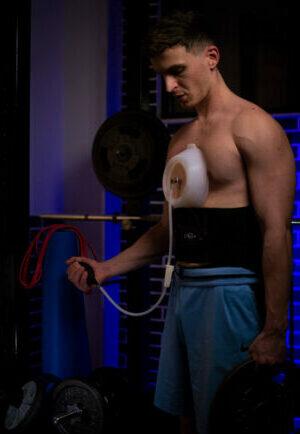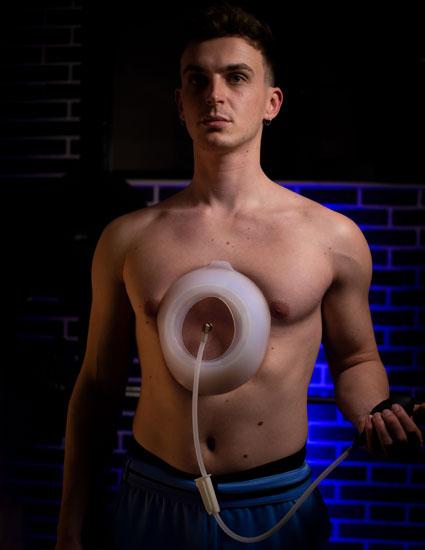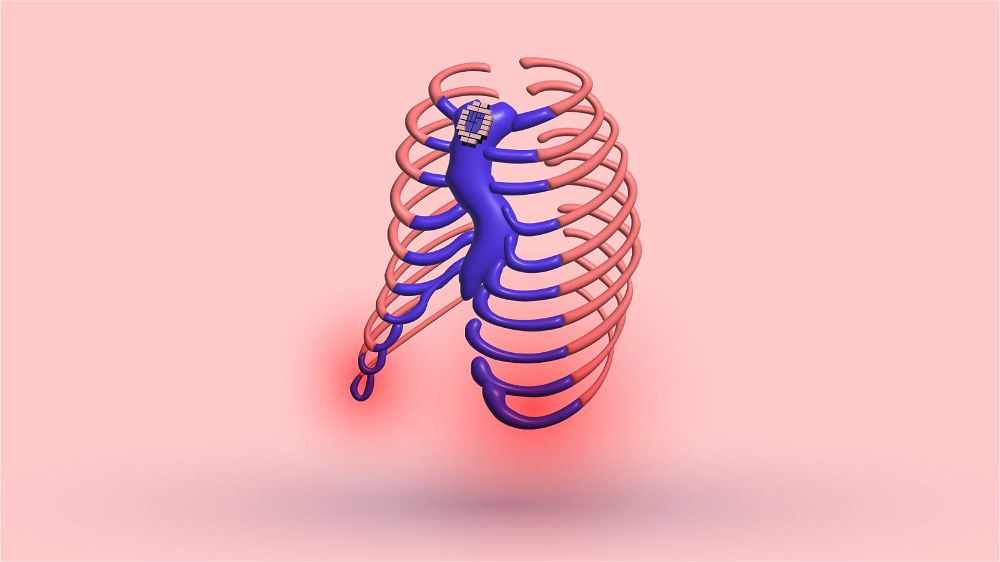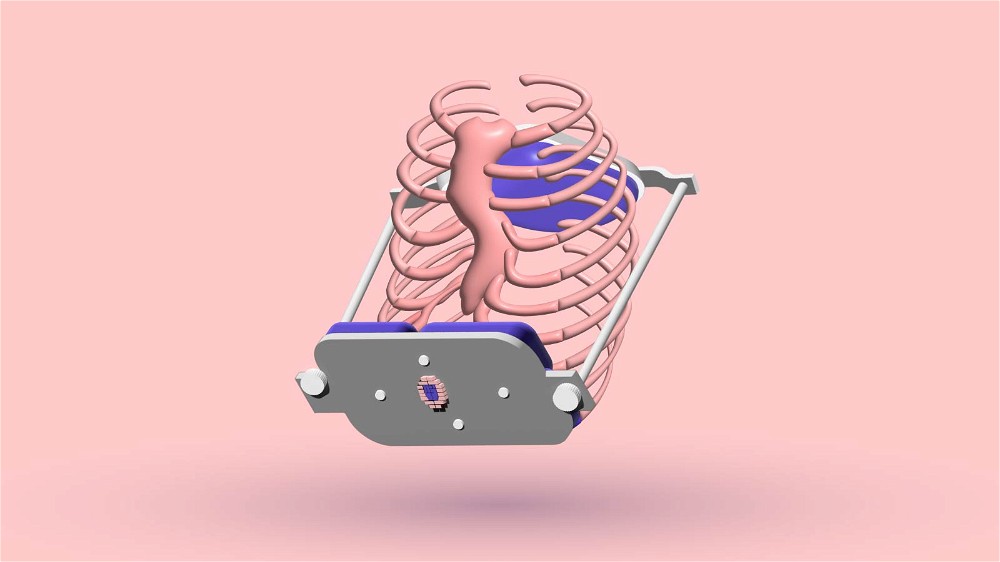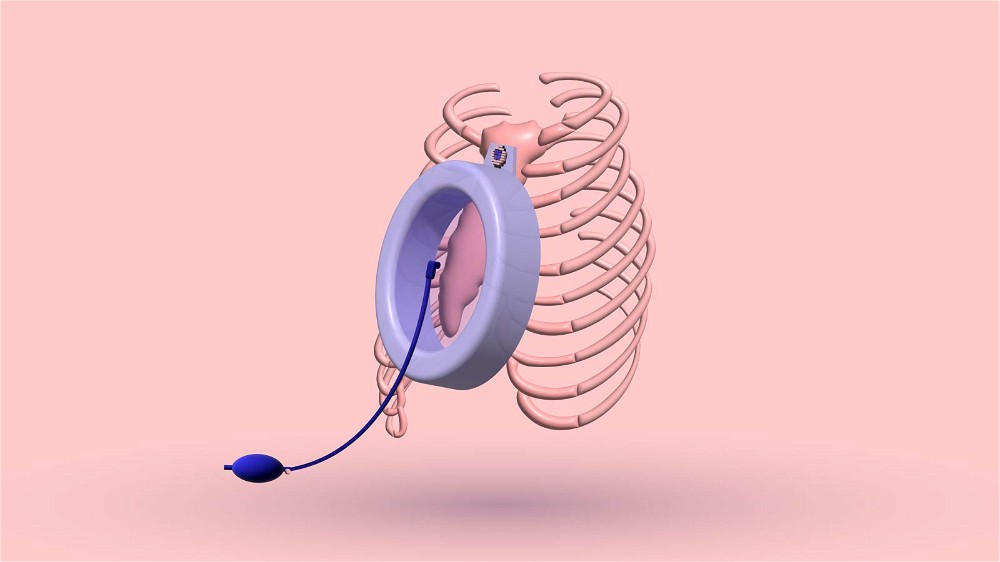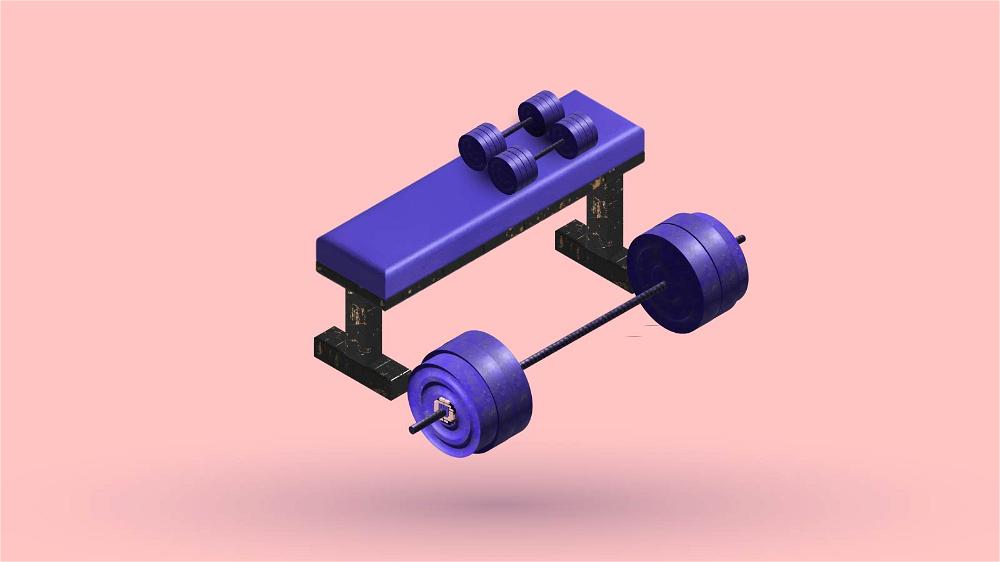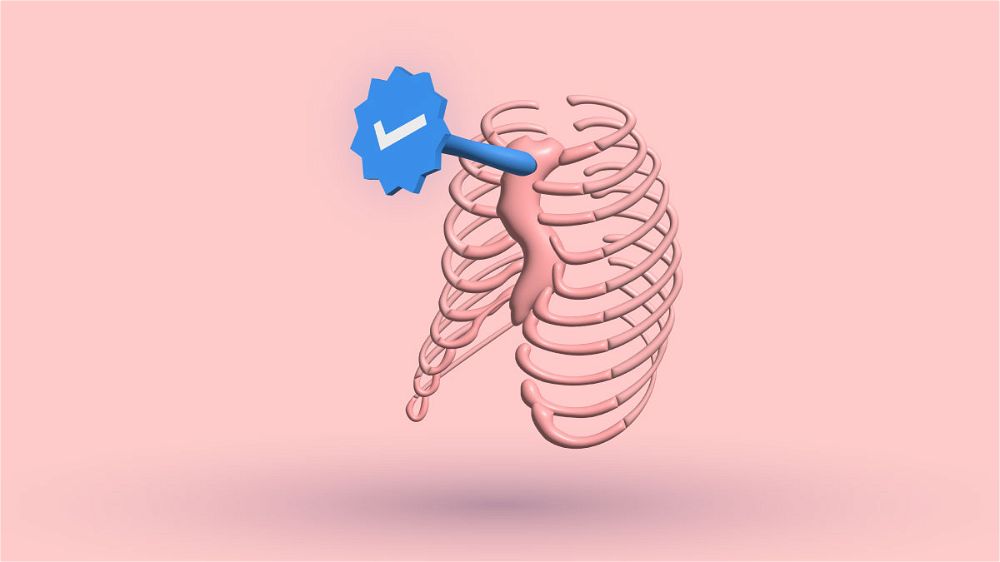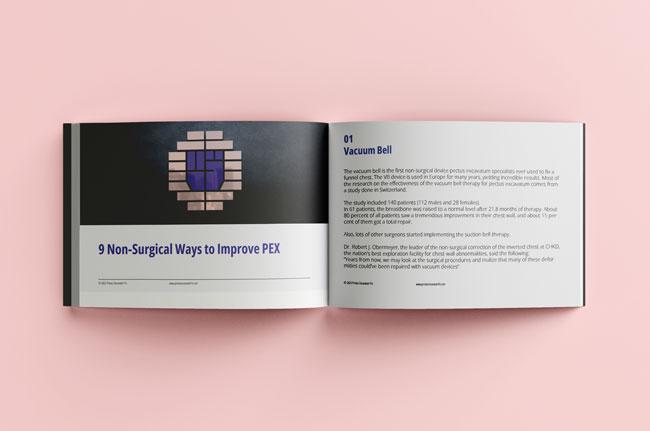I often experience unpleasant dizziness and lightheadedness due to limited lung capacity caused by my sunken chest deformity.
That usually happens after I suddenly stand up from a lying or sitting position, and I typically feel dizzy for about 10 seconds.
I tend to stand in one spot before moving because I fear losing my balance if I start walking immediately.
I advise staying stationary when you have dizziness and breathing deeply with your chest's total capacity. What helped me was lowering my head while holding above my knees with my hands for stability.
That way, you can get as much air as your body needs as quickly as possible. This blog post will cover why this is common among people with pectus excavatum.
I BLACKED OUT
My uncomfortable experience with dizziness culminated when I fainted. After reading and studying for school, I sat with my head bowed above the book for about half an hour.
When I decided to get up, I felt all the symptoms of dizziness, and I blacked out. I didn't know what had happened. I did not remember anything, but my mother screamed and slapped my face.
She told me that I unexpectedly lost consciousness as I got up and looked outside the window. I fell directly on the back of my head. Luckily, I wasn't hurt. I didn't even experience any pain.
After regaining consciousness, I realized that this was caused by instantly standing up after sitting for an extended period. I didn't take the time to get up and catch a good breath.
This was when I was very anxious, and my pectus excavatum deformity was at its worst.
WHAT CHANGED AFTER THIS INCIDENT
After this experience, I always try to get up slowly. I cultivate as many healthy habits as possible.
Drinking a lot of water throughout the day and maintaining a healthy diet was very important in my struggle with dizziness.
After a blood test, doctors revealed that my iron vitamin levels were deficient. This contributed to a lack of oxygen in my brain too. Because of that, I do fresh beetroot, apple, and carrot juices and eat spinach every day.
This helped me with dizziness tremendously. You need to rise slowly and allow your body to adjust. This tip is especially crucial when you first get out of bed in the morning because your blood pressure is at its lowest.
HOW PECTUS EXCAVATUM MAY CAUSE DIZZINESS
Patients with pectus excavatum may have no symptoms during regular physical movements.
Still, these symptoms most frequently arise with strenuous activities. The lungs can barely expand, so their capacity may be limited, leading to dizziness.
During physical activity, a person with pectus excavatum should focus on breathing with the diaphragm to allow the lungs to expand further and take in enough oxygen for the body's needs.
However, the extra energy spent breathing can lead to fatigue. I experience this when I meditate because I focus on deep diaphragmic breathing.
Because of this, meditation often tires me. Those suffering from severe pectus excavatum often realize that they can't do the same exercise as others.
The breathing issues and the additional health issues caused by the deformity are especially tough for adolescents, who start avoiding sports or other high-stressing physical activity.
BREATHING TROUBLES & DIZZINESS DURING PHYSICAL ACTIVITIES
Breathing problems can occur even during regular physical activities, depending on the severity of the deformity.
This unwanted health problem can occur in various circumstances and during different times of the day.
DIZZINESS WHILE STANDING OR SITTING UPRIGHT
Another side effect of pectus excavatum that I and many others experience and rarely discuss is difficulty with proper breathing while keeping the body upright or sitting straight.
This usually happens to me while I meditate in a seated upright position. That issue can be due to several different reasons and additional health problems.
Even for a healthy individual, vigorous activity, drastic temperature changes (moving from a warmer room to the cold outdoors), and poor air quality can make breathing difficult.
However, if your breathing has suddenly worsened for no apparent cause or gradually worsening, it might indicate a health condition.
There might be a lot of causes for sudden breathlessness, which is why it is essential to talk to your doctor.
Even psychological problems caused by pectus excavatum can lead to shortness of breath. Constant anxiety and depression can lead to bodily symptoms.
Also, suppose the air quality in your neighborhood is poor. In that case, it might also cause breathing struggles due to environmental factors.
Therefore, try to hike to the nearest mountain or green outdoors. It can help you ease pectus excavatum psychological problems. Also, it can improve lung capacity allowing you to breathe better.
MEDITATION DIFFICULTIES
I am one of the people who have difficulty with meditation. Because of my pectus excavatum deformity, breathing becomes more challenging whenever I try to sit up straight and start to feel dizzy.
The feeling is unpleasant. I feel like I have back pain and tightness in my chest. It can even lead to a panic attack if you're clueless about why it is happening.
Many studies find that meditation does not always result in pleasant experiences. People with pectus excavatum might feel negative meditation-related experiences.
I constantly blame myself during meditation when I start feeling uncomfortable with my breath, especially during guided meditation when I lose count of the inhalations and exhalations.
UNDERLYING HEALTH PROBLEMS
Aside from these obvious reasons, there may be other underlying health risks that you need to be aware of.
CHRONIC OBSTRUCTIVE PULMONARY DISEASE (COPD)
A lung condition causes patients to feel short of breath, tired, and unable to breathe normally. If you have COPD, you may find it difficult to catch your breath after exercising or walking.
You may also become out of breath just by resting or relaxing. Dyspnea is the medical word for shortness of breath.
Dyspnea is a symptom of COPD that happens when your lungs get damaged and no longer function as they should.
CONGESTIVE HEART FAILURE (CHF)
It is a long-term disorder that impairs the ability of your heart muscle to pump blood.
CHF refers to the stage at which fluid builds up within the heart, causing it to pump inefficiently.
ASTHMA
Asthma is a chronic lung illness that affects the airways. It is probable to happen for a variety of possible reasons and factors.
Experts think a mix of genetic and environmental factors might develop asthma or make a person more vulnerable to asthma triggers.
Because of these reasons, always try to let fresh air in your room and maintain regular hygiene of you and your living space.
PNEUMONIA
Pneumonia is a bacterial, viral, or fungal infection of one or both lungs.
This infection causes inflammation in the alveoli, and the alveoli get clogged with fluid or pus, making breathing difficult.
OTHER POTENTIAL CAUSES
BEING OVERWEIGHT
This is unlikely for pectus excavatum patients because our physique is generally slim.
However, if you are overweight, the excess fat in and around the chest can obstruct breathing and cause shortness of breath.
Obese persons with sunken chests often have shallow, insufficient breathing, making exercising challenging.
Obesity and inactivity cause significant issue, as lack of exercise further affects the respiratory muscles.
SMOKING
Cigarette smoking and pectus excavatum are crucial risk factors for developing respiratory problems.
The connection between dyspnea and cigarette smoking is proven in studies using smokers and ex-smokers as examples.
The benefits of quitting smoking are clarified. Smoking cigarettes increases the chance of developing respiratory symptoms in a dose-dependent manner.
Someone with a pectus excavatum problem must immediately quit smoking and focus on healthy habits.
ANXIETY
Panic and anxiety episodes may strike at any time and can be terrifying. Especially people that may already have some breathing problems, like someone with pectus excavatum.
These disorders might produce dizziness while lying down or even sitting.
PECTUS POSTURE
Shortness of breath and dizziness may occur while resting or sitting at your desk at work. Because of poor pectus posture, prolonged sitting can induce shortness of breath.
After a day at work or home, always do at least a few light exercises. That will help you exercise the muscles and, at the same time, circulate blood and air throughout your body.
HOW TO FIND OUT THAT YOU HAVE THESE PROBLEMS?
I will share with you the most common symptoms of this uncomfortable feeling. Many share the same symptoms and usually describe it as an inability to fill their lungs to their total capacity with air.
Your breathing has become heavy and uncomfortable for no apparent cause.
- The unsatisfying breath may cause chest discomfort, pressure, fainting, or nausea. When you're doing something active, you get dizzy or faint, or even when you are sitting and doing regular day-to-day activities. Trouble breathing at night. In worse cases, you may cough blood.
REGULAR CHECK-UPS
Many of these symptoms are fixable at home with the necessary medication. However, it is temporary, and you will still not know the real problem.
If you have pectus excavatum, this should not prevent you from having regular check-ups.
Even if you are sure that this condition is due to your deformity, it is still advisable to consult a professional and leave it to the doctor to solve that problem.
TESTS
You need to do a few tests to know the actual reason behind these problems.
Tests will help your doctor see what's causing your shortness of breath while standing or sitting with a straight back
THESE TESTS MAY INVOLVE THE FOLLOWING
- X-ray of the chest
- CT scan of the chest
- Research on pulmonary function (spirometry).
- A blood test.
WHEN TO SEE A DOCTOR
If your shortness of breath creates chest discomfort, fainting, nausea, a blue tint to your lips or nails, or a change in mental alertness, get emergency medical help immediately.
These might be indicators of a heart attack or pulmonary embolism. If you've been experiencing shortness of breath for a long time, it's time to seek medical help.
Please, take care of your health and do not leave everything for when it may be too late. I know these symptoms and conditions may sound scary, but it is best to respond promptly.
Our deformity can often be a thankless health condition and causes additional problems. The biggest positive thing is that there is a solution for everything. Living a healthy life is crucial for all of us.
DIZZINESS
Dizziness (Orthostatic hypotension) is a frequent occurrence for different reasons. It simply means that your blood pressure lowers when you move from lying down or sitting to standing.
You will feel a bit unstable for a few moments. When you stand up, blood pools in your legs for a brief while, and the body compensates by pushing blood out of the veins in your legs and revving up the heart a little.
Because digestion slows blood flow and lowers blood pressure, dizziness may occur after eating a meal. In these situations, slowly raise your head.
Take your time rising to a standing posture after napping or sitting for a lengthy period. Tense your leg muscles before standing to drive the collected blood into your system.
IRON DEFICIT
All body cells require iron. Iron's mission is to transport oxygen throughout the body as part of hemoglobin in the blood and myoglobin in the muscles.
Anemia caused by a lack of iron in the red blood cells is known as – iron deficiency anemia.
This condition typically occurs because of blood loss or a low-iron diet. Its most common symptom is dizziness after a sudden movement and a headache.
I was a victim of this until I improved my nutrition, including iron-rich foods.
THE BOTTOM LINE
Shortness of breath can signify various health problems, not just pectus excavatum. It can be mild, moderate, or severe and develop gradually or suddenly.
If you have shortness of breath, you may feel like you can’t get enough air into your lungs quickly enough. It may be hard for you to inhale and exhale, and you may feel forced to take another breath.
If you have unexpected shortness of breath that persists even after you’ve slept, or if you have other troubling symptoms like chest tightness, sickness, fever, or dizziness, seek medical help immediately.
If you have any concerns feel free to contact me or comment in the comment section below. Thank you for reading!
6 Sources
- Pectus Excavatum | Columbia Surgery [Internet]. [cited 2022 Dec 2]. Available
from: https://columbiasurgery.org/conditions-and-treatments/pectus-excavatum - Learn About Shortness of Breath | American Lung Association [Internet]. [cited
2022 Dec 2]. Available from: https://www.lung.org/lung-health-diseases/warning-signs-of-lung-disease/shortness-of-breath/learn-about-shortness-of-breath - Shortness of Breath on Exertion [Internet]. [cited 2022 Dec 2]. Available from:
https://www.healthline.com/health/shortness-of-breath-on-exertion#causes - Lindahl JR, Fisher NE, Cooper DJ, Rosen RK, Britton WB. The varieties of contemplative experience: A mixed-methods study of meditation-related challenges in
Western Buddhists. PLOS ONE. 2017 May 24;12(5):e0176239. - Cigarette Smoking and Dyspnea Perception - PMC [Internet]. [cited 2022 Dec 2].
Available from: https://www.ncbi.nlm.nih.gov/pmc/articles/PMC2669462/ - Shortness Of Breath: What It Might Mean | Penn Medicine [Internet]. [cited
2022 Dec 2]. Available from: https://www.pennmedicine.org/updates/blogs/heart-and-vascular-blog/2022/april/shortness-of-breath


